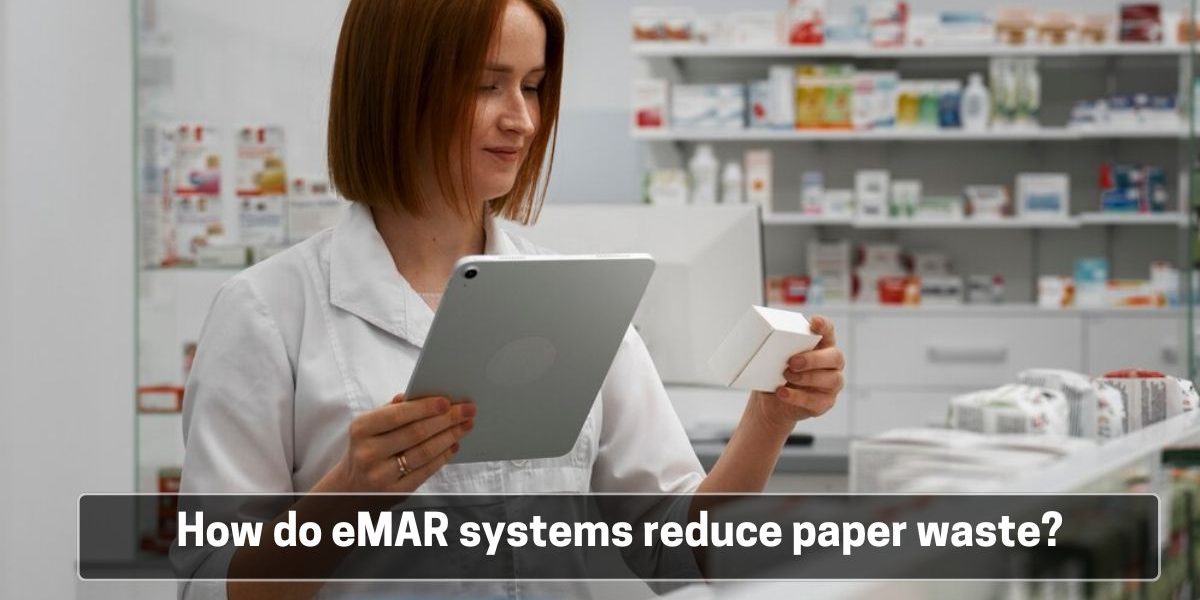The healthcare industry uses a substantial amount of paper. From patient charts to medication administration records (MARs), large quantities of paper are generated daily. This not only creates a cluttered environment but also impacts the environment. Electronic Medication Administration Record (eMAR) systems are bringing a significant change to medication management. The digital platform offers a sustainable solution to reduce the reliance on paper. Here, we share how eMARs are leading the charge in reducing paper waste in healthcare.
- Traditionally, patient medication information was maintained through paper records, charts, and administration logs. This constant use of paper caused a never-ending need for printing and filing. eMARs store all medication data electronically. Patient medication history, dosages, and administration times are readily accessible through computers and mobile devices. This digital approach eliminates the need for paper-based documentation. Over time, this small change can help save countless trees and reduce the environmental impact.
- Paper-based systems require revisions on multiple documents any time a medication, dosage, or administration schedule changes. This not only leads to paper wastage but also increases the risk of errors due to inconsistencies. eMARs eliminate this problem entirely. Updates are made electronically and instantly reflected across the system, which eliminates the need for additional paper copies. This ensures that all healthcare professionals have access to the most current information.
- Communication within healthcare teams is another area where eMAR systems promote sustainability. Previously, nurses, doctors, and pharmacists relied on printed memos, handwritten notes, or faxes to share information about patient medications. These paper-based methods not only resulted in wasted paper but also led to delays and miscommunication. With eMAR systems, messages and updates can be sent and received instantly. This ensures that all team members are on the same page.
- Illegible handwriting, misinterpretations, and manual entry mistakes are some of the mistakes associated with paper records. These errors often waste a substantial amount of paper such as error correction forms, incident reports, and follow-up documentation. By digitising the medication administration process, eMARs help eliminate these errors and thereby, reduce paper wastage. Clear, typed entries ensure that all information is legible and accurate.
- Regulatory compliance often requires detailed documentation and audit trails. Maintaining these records on paper is not only difficult but also wastes resources. eMAR systems simplify this process by keeping detailed electronic records that are easy to search and retrieve. Audits can be conducted more efficiently, with less reliance on physical documents. This not only saves paper but also reduces the time and effort required for compliance activities. Electronic records are also less likely to be lost or damaged compared to paper documents.
eMAR systems are transforming the way medication management is handled in healthcare settings. By replacing paper-based processes with digital solutions, eMARs offer numerous benefits, including reduced paper waste, enhanced accuracy, and improved efficiency. To know how eMAR can help your healthcare facility, book a demo with us today.







